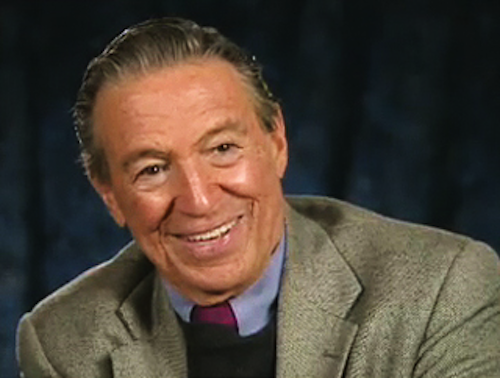Maybe you already love Howard Stern. If so, I can’t imagine you’ll learn much from me. I’m no Superfan.
But maybe you hate Howard Stern. Maybe you think he’s a sexist. Maybe you think it’s cruel the way he uses freaks (like little people with bad attitudes, schizophrenic pakastani teenagers, Tan Mom or…. list goes on) to liven up his show. Maybe you think he’s a little racist. Maybe you think he is a New York liberal. Maybe you think he’s too showbiz. Maybe you just think he’s trash.
If so, please read on, because it’s quite possible you’re really missing something.
I remember the first time I saw Howard Stern. I was in high school and a televised version of his radio show came on after Saturday Night Live.
He was this ugly stringy haired lanky dude with a New York accent. And he had this freakish cast of characters around him. From his bucktoothed executive producer, to his dreadlocked female coanchor, to the hookers and strippers who shot ping-pong balls out of various body parts.
It was fascinating for about five minutes and then it just got boring. I wasn’t into the spectacle.
But the TV show really only scratched the surface.
Stern is a showman. And he knows that we can’t help but crane our necks to see the baudy, the train wrecks, the pitiful who we can look down our noses at, and the beautiful celebrities.
But that’s really all window dressing. Parenthetically, as I recall that’s also really about as deep as the TV show got.
But underneath it all there’s Howard Stern. And I’m here to tell you he’s a smart dude.
More importantly, he is the single best interviewer I have ever heard.
Yes, you read that right.
He’s better than Terry Gross. He’s better than Oprah. He is better than Larry King. He’s better than Mike Wallace. He’s the greatest interviewer of all time, for my money.
No Howard Stern
And as I think about it, there are number of reasons for this.
1. He’s completely self absorbed.
He’ll talk for hours about his own diet, how small his penis is, his sexual embarrassments, his anxieties, his relationships with his parents.
He has no shame. And by being so open, He encourages his guests to also be uninhibited and honest.
2. He does his homework.
He finds out obscure personal things about his interviewees that are interesting on a human level.
This creates an atmosphere of intimacy. He shows his interviewees that he finds them fascinating, and everyone loves to talk about them self at the end of the day.
3. He is nonjudgmental.
His only agenda seems to be to get to the truth about the person he’s interviewing. There are no gotcha questions, no crusades, and no us versus them insularity.
Again, people let their guard down when they’re not afraid of being judged or objectified. (I will admit that he does objectify people in other segments of the show, but we’re talking about the interviews here.)
4. He is a freak.
Do you remember high school?
Didn’t you have different sets of friends. Maybe some friends were the “cool” friends you hung out with because you wanted to meet cute members of the opposite sex. Maybe some were more “work friends” who you played sports with, or acted in plays with or played in the orchestra with. And probably some were “freak friends.” These were the ones who were a little bit off. The ones who you didn’t necessarily want to be seen with when you saw the girl you liked. But weren’t these the ones you could really open up with? Who you got crazy with? Who you could let your guard down with?
That’s where the Stern show’s crazy cast of characters comes in to play. The insanity of it all makes the interviewees feel like they’re in a freaky tree house, where they can just be themselves.
They become like the kids at a party in high school who are surrounded by other kids who are drinking, but are not drinking themselves. Oddly enough they begin to act a bit disinhibited as well. Contact high!
This effect becomes like sodium pentathol to his guests, unlocking their innermost secrets and making for moments of revelation during the interview.
5. He is legitimately interested in people.
This is the most important one. Every question that he asks seems to come from a place of genuine curiosity. It’s like he’s trying to crawl into the skin of the person he’s interviewing and to imagine what it would feel like to be Howard Stern living that persons life.
He is also incredibly empathetic, and is able to use his humor to break tension when it gets uncomfortable for the person he is talking to.
And the result of all this is that when he interviews someone, by the end of the interview, you, the listener, feel like you know the guest.
You spend a little time in their shoes, be they Paul McCartney, or Jewel, or Mike Tyson. It really doesn’t matter. They are people. And they are interesting in the way that all people are interesting.
You stop seeing Paul McCartney as an iconic Beatle. For the first time you can imagine him as a 30-year-old dealing with the paranoia of breaking up with his best friends and bandmates, and losing the only life he’s ever known.
Jewel stops being a pretty folksinger, and becomes a talented hero who scrappily fought for her own happiness despite a brutal childhood and a stint as a homeless woman.
Tyson stops being a savage pugilist, and becomes our window into what it’s like to be a poor black kid in a New York project, sleeping in the same bed as his prostitute mother.
You end up right there in their skin, right next to Howard.
So how does this pertain to me being a doctor?
Well, when I first started listening to Howard Stern I fired all of my office staff and replaced them with prostitutes, little people, and recent discharges from the psychiatric unit…..
No, the real change is that Stern has taught me that all people are interesting.
So when I’m doing a history and physical on a patient, I try to find out a little bit more than their chief complaint, the pertinent positives and negatives, and the differential diagnosis.
I try to find out what they’re passionate about, unique things they’ve experienced, and little things that they hold true to their heart.
I hope this makes the whole experience seam less transactional, and more comfortable for the patients.
But what I know is that this makes the experience eminently more meaningful for me.
I got into medicine out the naïve desire to help people, because I like people.
And this approach has helped me get back to that first principle just a little bit.
The real question of course is how this pertains to my quests for free travel, early retirement, value, and happiness.
And I don’t really have a good answer for that one. But I’ll try.
While this change might not help me get to financial independence any quicker, when I’m spending time with my patients, I feel a little bit more like a retiree, and a little less like a businessman.
Challenge: Listen to one of these interviews and give your honest opinion. Aint he the best?

